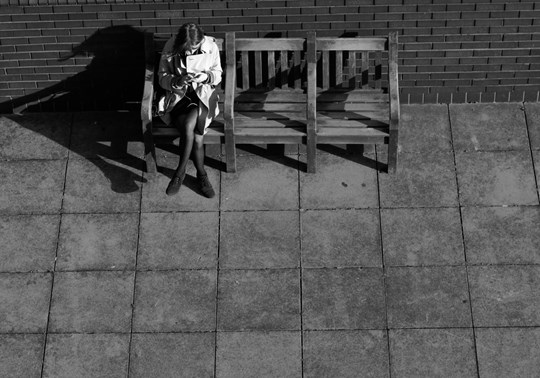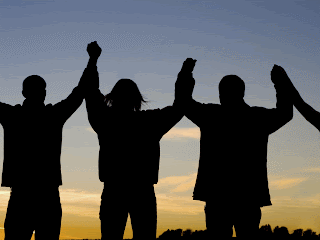
This week, I am attending my third denominational annual
meeting within the last month. What I have noticed at each meeting is
homage to the past as well as hope for the future. This is a good thing.
We need to remember where we came from as we look to where we should
go.
However, this is not always an easy thing. Especially for denominations.
Often times, denominations want to hold on more to the
past than they want to reach for the future. Only when the pain of
remaining the same grows greater than the pain of changing do many
denominations actually move forward. Sometimes the root of this strong
desire to stay the same can, unfortunately, border on idolatry if we are
not careful.
Both personally and as a denomination, we tend to long
for the good ole days. Many times, however, those days really weren't
that good. They were just comfortable. That comfort becomes our desire
instead of doing what God has commanded regardless of the discomfort.
These last few weeks brought to mind this excerpt from my new book Subversive Kingdom.
I've seen lots of idols in my time. From statues in
India, and masks in Africa, to ancestral markings in South America,
idols exist in all shapes and sizes. All forms of idols fill gaps. Man
was designed to worship and will worship something. And as strange as
these items may appear, it's not hard to notice their power. They
capture the identities of those who are so connected to these
attachments from their culture and history.
Yet strangely enough, my idols are not strange to me.
They call to me. Personally. They appeal to me from my
past. They make their persuasive case for why I need them so badly and
how much they can do for me. They try to convince me that we can all get
along here in one place together, that I can share space with both them
and my Christian devotion at the same time, and that God will
understand.
So my idols are much more personal than a piece of stone
or a block of wood. Anything from my past or present that shapes my
identity or fills my thoughts with something other than God, especially
on a regular, ongoing, irresistible basis, is an idol. Idolatry does not
count the cost of worshipping anything but God. And although few of us
could ever imagine worshipping a picture of ourselves, the reality
is--we are either worshipping God or some form of ourselves. When we are
driven by physical and emotional appetites rather than being led by the
Spirit of God, we are worshipping the idol of ourselves. Paul spoke as a
prophet on fire to the Colossian Christians: "Therefore, put to death
what belongs to your worldly nature: sexual immorality, impurity, lust,
evil desire, and greed, which is idolatry" (Col. 3:5).
Both a king and his kingdom exist in every person's
life, creating within us an impulse or desire for something more than we
have right now. Even many God-given desires can turn into idols when we
become too urgent to satisfy those desires. But every idol is a
competitor. Our kingdom calling will always be mutually exclusive with
the conniving appeals of other gods. We must never forget that we are in
"rebellion against the rebellion" of the world's system, that we are
commissioned by God to live with different loyalties from those of the
world--and that, in fact, part of our motivation for choosing this
singular existence is for the sake of those who are caught in the
enemy's trap.
We're just subversive that way, aren't we?
Because if we allow idols to occupy living quarters in
our hearts--especially on a consistent, unquestioned basis--we will
never be able to develop the integrity and discernment necessary to
challenge the oppressive values of the broader culture. We'll be too
distracted and self-absorbed to notice the many examples of pain, doubt,
confusion, and injustice happening in people's lives right around us.
We simply cannot serve successfully as agents for the kingdom of light
while simultaneously harboring pockets of darkness in the shadows and
corners of our hearts. Just can't. Doesn't work like that.
Idols. Divided loyalties. Split personalities. These are things we cannot tolerate if we hope to remain subversive.









